Bangladesh’s interim government Chief seeks extradition of ousted PM Sheikh Hasina from India
- Update Time : Wednesday, November 20, 2024
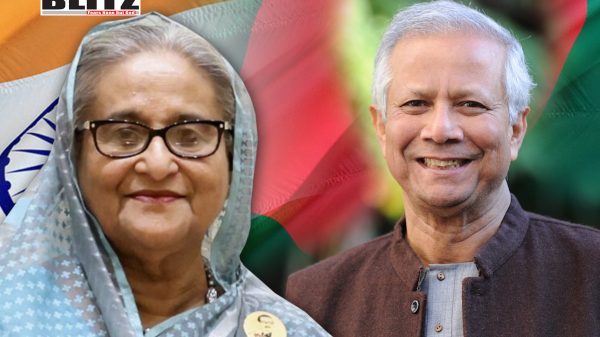
In a dramatic development that could shift the political and diplomatic landscape of South Asia, Bangladesh’s interim government, led by Chief Adviser Mohammad Yunus, has demanded the extradition of former Prime Minister Sheikh Hasina from neighboring India. The move comes following months of violent protests, regime change, and rising tensions between the two neighboring countries. Yunus, a Nobel Peace Prize-winning economist, was appointed to lead the caretaker government after Hasina’s ouster in August, and he has since been at the forefront of efforts to stabilize the country and restore democracy.
The political crisis in Bangladesh began with widespread protests that started in July 2024, when students led a movement against what they perceived as a flawed job quota system that disproportionately benefited members of Sheikh Hasina’s ruling Awami League party. Despite the Supreme Court striking down the quota system, the protests grew in size and intensity, ultimately morphing into a broader uprising that criticized Sheikh Hasina’s autocratic leadership style and alleged human rights abuses by her administration. The protests culminated in violent clashes between demonstrators and security forces, leading to the deaths of over 1,000 people.
In the face of escalating violence and pressure from the military, Sheikh Hasina resigned on August 5, 2024. This triggered the formation of an interim government, headed by Yunus, which was tasked with overseeing a peaceful transition to a new democratic government. Since her departure, Hasina has sought refuge in India, where she remains as the Bangladesh government pushes forward with its plans for a transitional period.
Addressing the nation in a public speech on November 17, Yunus marked his first 100 days in office by revealing his administration’s intention to seek Hasina’s extradition from India. Mohammad Yunus, who has long been a vocal critic of Hasina’s policies, called for the “return of the fallen autocrat” and emphasized that the interim government would formally request India’s cooperation in the matter. According to Mohammad Yunus, his government had already raised the issue with international legal authorities, including Karim Khan, the Chief Prosecutor of the International Criminal Court (ICC).
Mohammad Yunus stated that the Bangladesh government’s request to India is not only for Hasina’s extradition but also to ensure that she does not “create problems” for Bangladesh during the transitional period. In a subsequent interview with Al Jazeera, Yunus highlighted the tense nature of Bangladesh-India relations, despite their historical ties of cooperation in areas like trade and security. The interim government chief stressed that while India may host Hasina, it must be mindful of the potential destabilizing effects that her presence could have on Bangladesh.
Sheikh Hasina’s resignation marked the end of her decade-long rule, during which she was often criticized for suppressing political opposition and undermining democratic institutions. Under Hasina’s leadership, Bangladesh experienced significant economic growth, but her regime was also marred by accusations of corruption, human rights abuses, and autocratic practices. Protests against her government had been simmering for years, but the eruption of violence in 2024 prompted a swift and dramatic shift in the political landscape.
In addition to the popular protests, several criminal cases have been initiated against Sheikh Hasina and other members of her government, accusing them of involvement in human rights violations such as murder, torture, abduction, and even genocide. These legal challenges, coupled with mounting public dissatisfaction, led to Hasina’s eventual ouster, with Yunus assuming the role of interim leader.
Despite the interim government’s efforts to restore stability, the political climate remains fraught with uncertainty. In his address, Yunus reaffirmed his commitment to holding democratic elections, but he acknowledged that significant electoral and constitutional reforms are required before elections can be held. Yunus urged patience from the people, emphasizing that these reforms were necessary to build a more resilient electoral system that would endure for decades to come.
Since Sheikh Hasina’s departure, Bangladesh’s diplomatic relations with India have been under strain. Under Hasina’s leadership, the two countries had a relatively close partnership, particularly in terms of trade, security cooperation, and regional issues. However, Yunus’ administration faces challenges in managing these ties, especially as India has raised concerns over the safety of its minority Hindu population in Bangladesh, where several reports of religious violence have surfaced in the wake of Hasina’s fall.
In an interview with The Hindu published on November 18, Yunus dismissed Indian media reports alleging violence against Hindus and other minorities in Bangladesh as “propaganda.” He also downplayed the concerns raised by Indian authorities, claiming that they were exaggerations aimed at creating tension between the two nations. Yunus reiterated that he had personally conveyed the same message to Indian Prime Minister Narendra Modi during a phone call in August, where he expressed his government’s commitment to maintaining peace and stability in Bangladesh.
The allegations of religious violence have gained international attention, particularly from Western leaders, including US President-elect Donald Trump, who condemned what he called the “barbaric violence against Hindus, Christians, and other minorities” in Bangladesh. Trump’s comments came as part of a broader critique of the ongoing instability in Bangladesh, with Trump calling the country “in a total state of chaos.”
However, Yunus responded to these criticisms by emphasizing that Bangladesh’s relationship with the United States remains strong and that the country’s international standing would not be diminished by what he called “propaganda” surrounding religious violence. He also expressed confidence that relations with Washington would continue to strengthen under his leadership.
As Bangladesh moves forward under the leadership of Yunus, the country faces numerous challenges, both internal and external. The push for Hasina’s extradition is just one facet of the broader political transition taking place, and it remains to be seen how India will respond to this request. Diplomatic tensions between the two countries are likely to intensify as Yunus pushes forward with his agenda of democratic reforms.
Yunus’ administration has promised to take swift action on electoral reforms and hold elections, but the timeline for these changes remains unclear. The interim government’s ability to navigate the delicate political and diplomatic terrain will be crucial in determining whether Bangladesh can emerge from this crisis with a stable and legitimate democratic government.
In the coming months, all eyes will be on Bangladesh as it attempts to rebuild its political institutions and restore order after one of the most tumultuous periods in its history. The role of India, as both a neighbor and a key player in regional politics, will be pivotal in shaping the future trajectory of the nation. The extradition request for Hasina is just the beginning of what promises to be a challenging and uncertain period for Bangladesh.


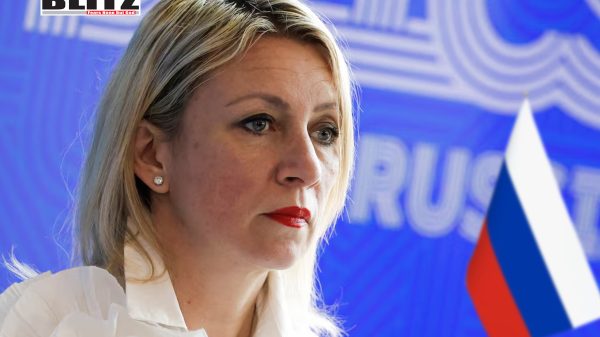
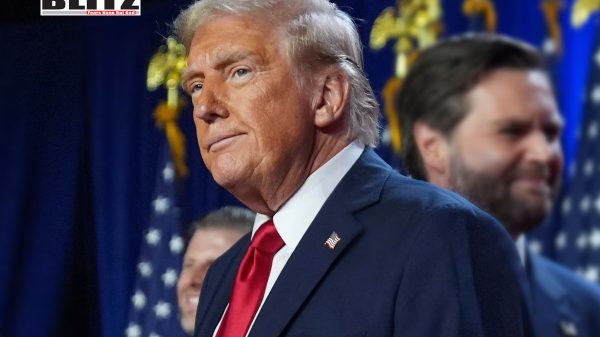



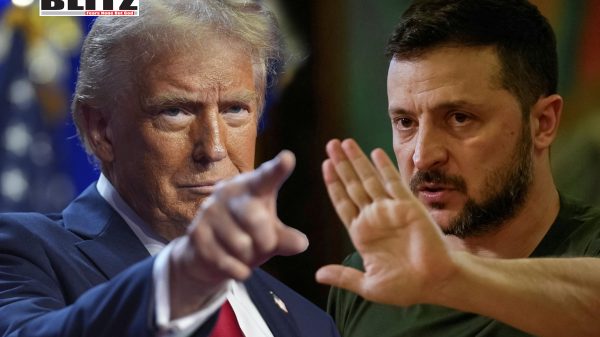
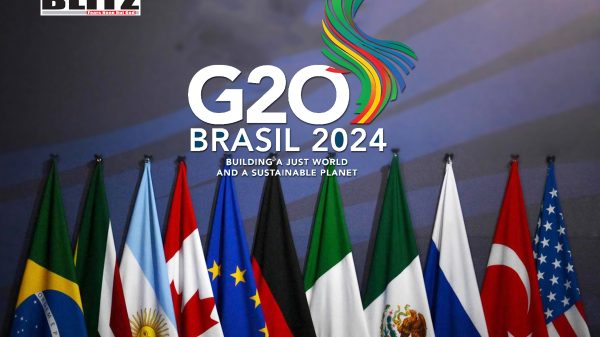
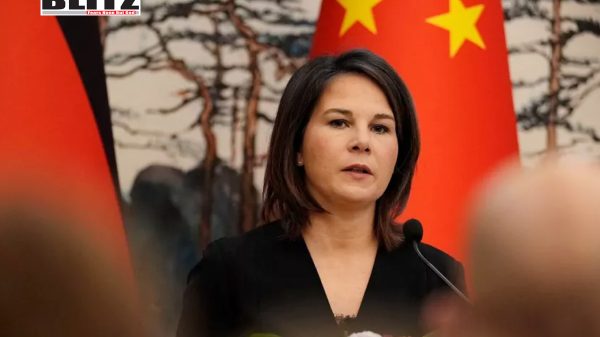
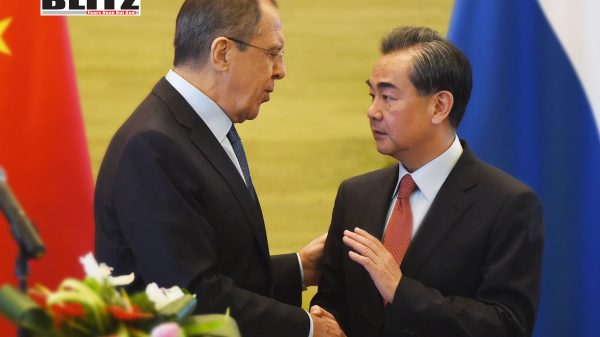


Leave a Reply